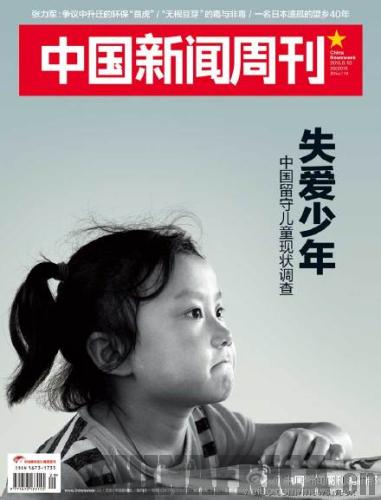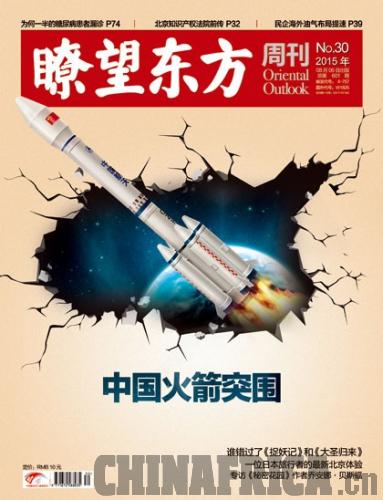| 
Care for Left-Behind Children
China Newsweek
August 10
With China's urbanization becoming faster since the 1980s, surplus rural labor is increasingly migrating to big cities. Due to the household registration policy and limited financial capacity, many village couples have no choice but to leave their children behind. Those children, known as left-behind children, have become a nationwide phenomenon.
According to a report published by the All-China Women's Federation in 2013, one fifth of Chinese children are left-behind children, totaling 61.026 million, an increase of 2.42 million compared to 2005.
According to research, left-behind children are more likely to be trapped in negative emotions due to long period of separation from their parents and lack of affective interaction. They are more vulnerable to psychological issues and tend to become rebellious and unsociable.
Dong Shitan, a professor at the Shandong Police College, believes the influence of childhood behavior could last a lifetime. Being left behind would have the potential to impact juvenile crime. Therefore, more efforts should be made to help left-behind children.

Space Commerce
Oriental Outlook
August 6
Asiasat 1, a U.S.-made satellite, was successfully launched with the China-made Long March rocket on April 7, 1990. It marked China's rise as one of the major satellite launch service providers in the world, and also, the beginning of a close but short Sino-U.S. cooperation in the commercial space industry. Since 1991, however, the United States began to impose sanctions on China and added more limitations. For example, no launch service provider in any country is allowed to launch satellites with U.S.-made components using Chinese launch vehicles.
Oriental Outlook points out that when it comes to a commercial launch, it's not business but politics that is behind it, which explains why China entered the global commercial launch market before getting suppressed. With a new generation of China-made launch vehicles in the pipeline, China will seek a new international cooperation mode to break through the barrier.

Giving Justice Back
Caijing
August 3
After the 18th National Congress of the Communist Party of China in late 2012, the anti-corruption campaign has become one of the important measures for the government to win people's confidence. At the same time, a campaign to redress previous miscarriages of justice - though it does not draw as much public attention as the corruption crackdown - is also making remarkable achievements.
Statistics show that unjust death sentences in over 20 cases were overturned between 2013 and 2015.
According to Caijing magazine, redressing the miscarriage of justice has been a breakthrough. China's judicial reform is making progress by breaking down the barriers set up by inappropriate criminal justice policies.
Yuan Devaluation
Global Times
August 13
Devaluation of the Chinese yuan will inevitably have an impact on people's lives in the short term - for example, on outbound tourism, imports and overseas studies. But that impact will be temporary and likely to be offset by the income effect. In other words, a moderate depreciation is undoubtedly beneficial to domestic economic growth in the long run. It will not make people poorer. Yuan devaluation will raise the overall domestic price level by pushing up imported goods price, and reduce current deflationary pressures. It will also boost the growth of foreign direct investment. As foreign trade enterprises receive more orders, employees income will increase. The depreciation is a dynamic equilibrium process in line with market expectations. The yuan has enough room to fall further in the future. |